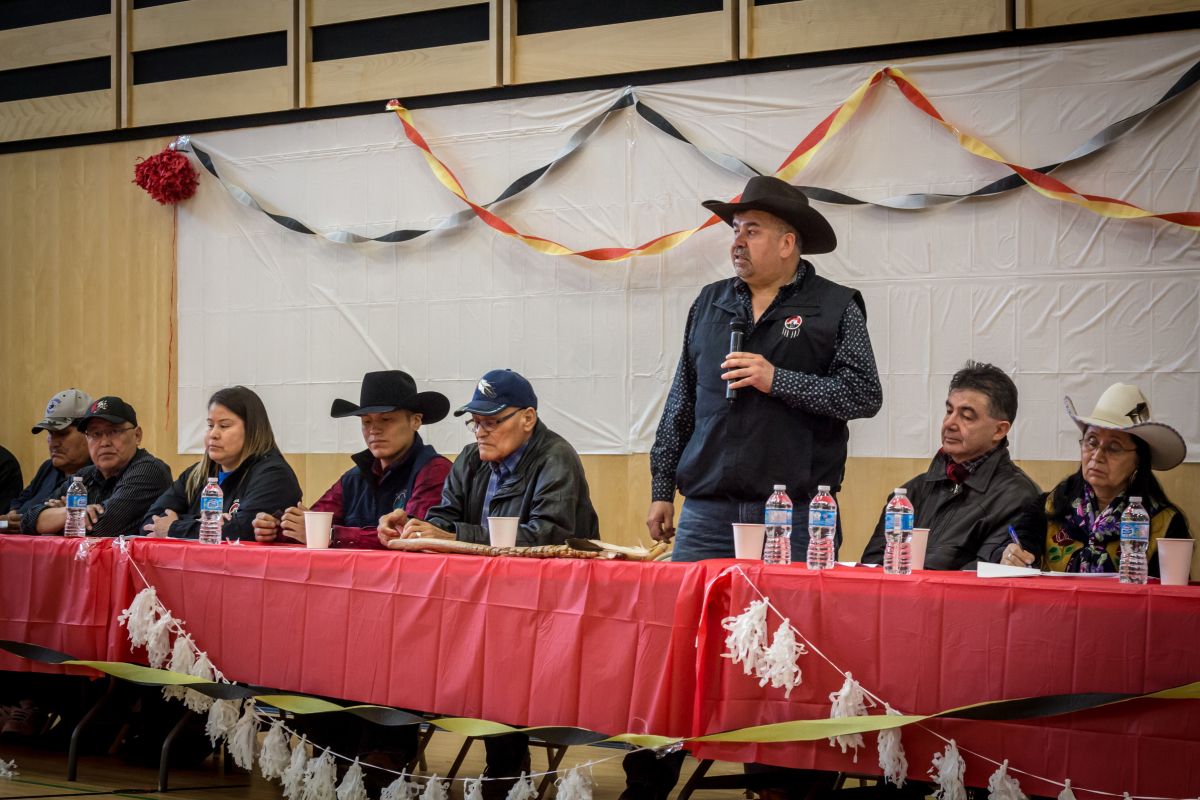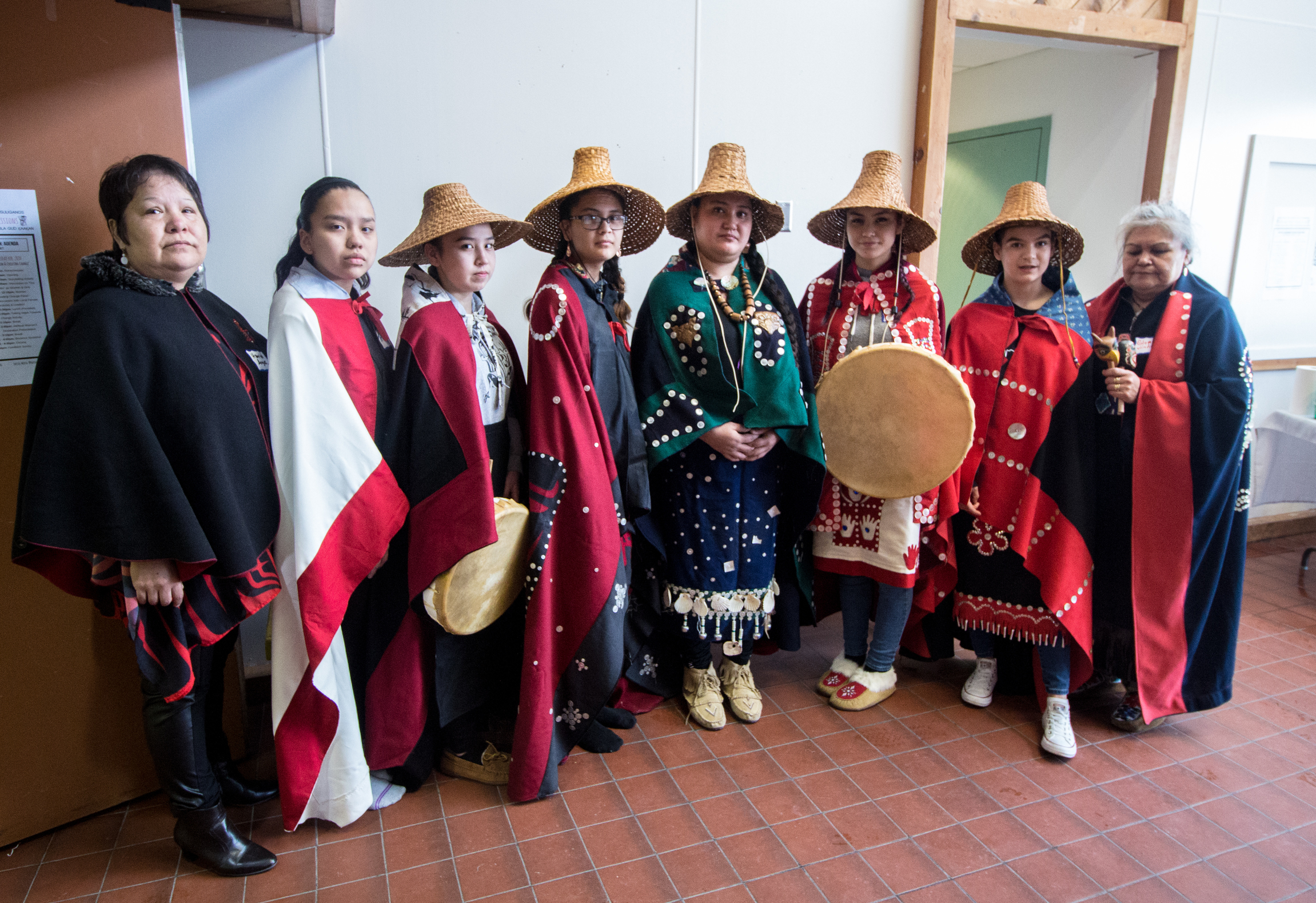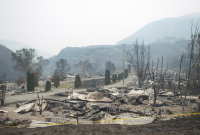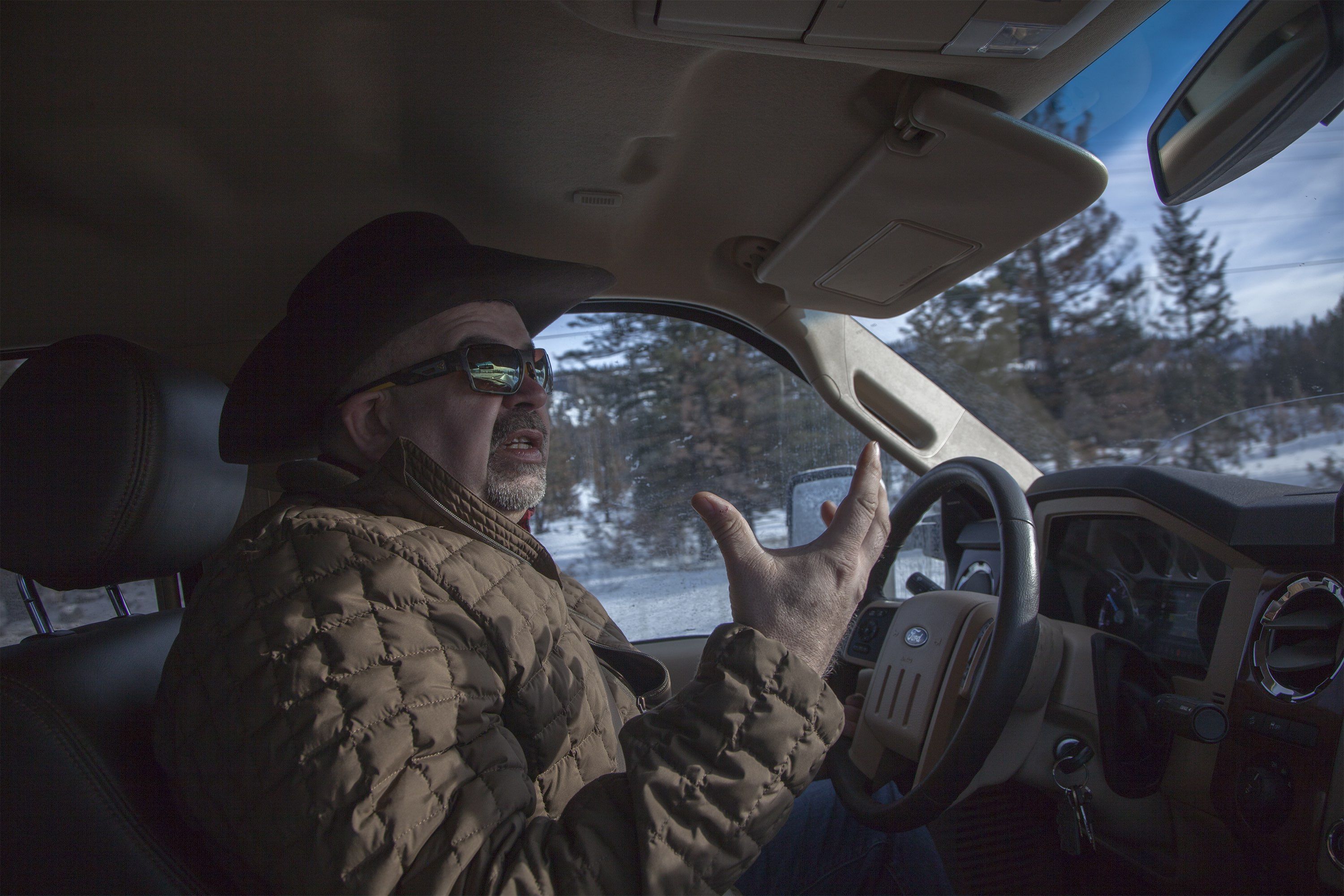Support strong Canadian climate journalism for 2025
The Tsilhqot'in people are people who fight for what they believe in. That message — one that Tsilhqot'in people know well — echoed throughout the Tl'etinqox School gymnasium, where at least a hundred members gathered to send their leadership to Ottawa, in the Tsilhqot'in way.
Before volunteers served lunch and chiefs spoke, the community remembered why they were gathered on that rainy Thursday morning.
One hundred and fifty-four years ago, six Tsilhqot'in war chiefs were hung by the colony of British Columbia. The war chiefs were tricked. Tsilhqot'in Nation had declared war, what became known as the Tsilhqot'in War, to protect their land and water from mining construction.
The Tsilhqot'in people fought against road workers and the colony of B.C., to protect their people, land and culture from gold and copper mines. A message was sent to the Nation, informing them that the Governor had wanted to talk truce, so five Tsilhqot'in men rode into opposition camps, in the understanding that they were going to negotiate a peace accord.
To their dismay, the men were shackled, tried, convicted of massacring a road-building party and hanged. The sixth man was tried and hanged the following year.
The stories of the Tsilhqot'in war of 1864, of the hanging of their Chiefs, of the pain and resilience of those left behind, are stories that Tsilhqot'in people grow up hearing. But they are not stories that Canada has been eager to share.
All of that is slated to change.
March 26, 2018 will become another historic day for the Tsilhqot'in people. It's the day Prime Minister Justin Trudeau's government will exonerate the six Tsilhqot'in Chiefs of any wrongdoing.
"On Monday, we’ll be in their government house, with their big chief," said Tribal Chair Chief Joe Alphonse at the opening of the community send-off yesterday. "Canada is taking ownership that they were the ones in the wrong."


Chief Alphonse told his community that the exoneration was the first order of business with Canada, in making things right. The exoneration stemmed from the Tsilhqot'in's 2014 Aboriginal title case, a historic landmark decision, when Aboriginal title was recognized for the first time by the Supreme Court of Canada.
The Tsilhqot'in became known, as leaders, as a fighting Nation, by those who weren't already familiar. This past summer, the Nation made headlines again, when they refused a provincial order to evacuate their land due to wildfires. The Nation stayed, abandoned by the government in the midst of the inferno, saving their land and homes many wouldn't have been able to recover.
But the Tsilhqot'in come from a long line of warriors, they said, in speeches throughout the day. Yesterday's victory, today's gathering and tomorrow's business in rebuilding their Nation, is no different than the wars fought on their behalf by their ancestors.

Traveling to Ottawa with Chief Joe Alphonse are Chief Russel Ross Myers, Chief Francis Laceese, Chief Roy Stump, Chief Otis Guichon Sr., Chief Jimmy Lulua, former Chief Tommy Billyboy, former Chief Ervin Charleyboy, Councillors Cecil Grinder, Loretta Williams, Marilyn Baptiste (Xeni Gwet'in) and Norma-Jean Stump (Esdilagh First Nation), Youth representative Peyal Laceese, and elder Joan Gentles. Executive lead Jay Nelson will also attend, with social lead Jody Nishima, TNG Co-Chairs Shawn Atleo and Heather Atleo, communications manager Graham Gillies, executive assistant Daana Gilpin, support J.P. Laplante, Rory Stump, Chastity Davis and Janine Cunningham.
After the six chiefs were killed in 1864/1865, Tsilhqot'in oral history remembers how those left behind stayed quiet during the day, but feasted and celebrated their lives at night. Despite the trickery, trauma and pain, they held a celebration to remember their chiefs, said elder and educator Joan Gentles, who was asked to speak on behalf of the women. They sent them off in a good way, in the Tsilhqot'in way, she said.
"We're doing that again today," she said.
Gentles spoke about the pain of the mothers, wives and children, who had been left behind when the Tsilhqot'in men were killed 154 years ago. That pain has stayed within the community, she said, and the wrongs against women still continue today. But Tsilhqot'in women are strong, and before contact with settlers, they were considered and treated as equals to men, she said. Gentles said the community was working towards restoring that balance once again.
After the chiefs gave speeches, the delegation stood in line to be smudged from either side. They stayed in line to receive community, as family and friends lined up to hug, bless and thank each member of the delegation.

Some of the members had held a sweat the previous night and each were preparing for the journey to Algonquin territories, to Parliament Hill, in their own way. The nation had reached out to Algonquin leadership, to ask permission to have this order of business on their territories.
Chief Alphonse asked the community to think of them and send prayers. There will be a live-streaming of the event in the Tl'etinqox community as it happens in Ottawa.
Though the event in Ottawa is nothing less than historic, paving the way for the Tsilhqot'in community to further negotiations, talks and settlements with the provincial and federal governments, it's only one step in the exoneration process. Tsilhqot'in leadership has invited the prime minister to their lands, this coming summer, to share the same speeches held in their government building, with the Tsilhqot'in Nation.
"We invited him to address the whole nation," Chief Alphonse said. "To me that’s the real one—if it’s happening on our lands."








Comments